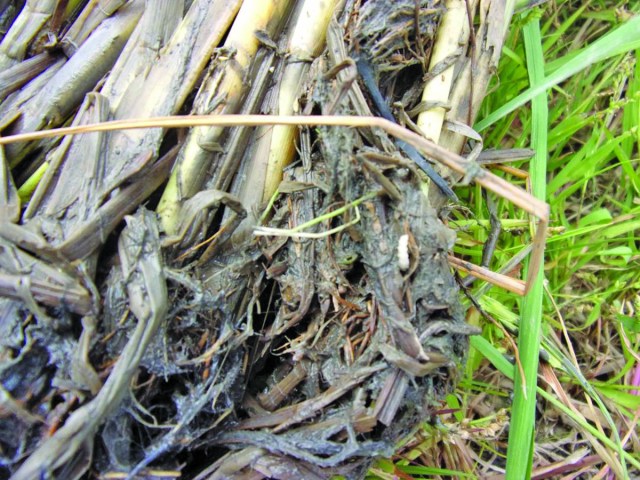
According to the GRDB, a visit to the area revealed that there is no outbreak of the worm associated with the water weevil as reported. The State rice entity stated that the pest was only found in one farmer’s field in the area.
However, “several farmers contacted Nand Persaud and Company Limited on the infestation issue and have benefited from intense investigative field visits and follow-up plans conducted by their agronomist. This has resulted from significant recoveries made from the fields treated and arduous efforts are currently in progress to bring the pest infestation under control,” the rice milling company said.
Nand Persaud and Company Limited, one of the largest rice mills in Berbice, on Tuesday said the presence of the pest was characterised by stunted plant growth and yellowing of leaves. These signs often cause confusion among rice farmers who mistakenly believe that there is a nutrient deficiency problem.
In its release dated March 9, the GRDB listed seven chemicals, including Matador, to be used to deal with the pest.
However, Nand Persaud and Company Limited has strongly objected to this. According to the company, the rice farmers should not utilise the pesticide Matador for the treatment of this pest or paddy bugs since it has been found to escalate the problem.
The Plant Hopper is known to transmit a virus called Hoja Blanca which can result in 25-50 per cent loss in yield if the problem is not identified and treated early.
Recently, brightly coloured leaves were observed on some of the paddy plants.
According to some farmers, their fields have experienced stunted growth over the past month.
One of the affected farmers is former Rice Producers Association (RPA) Extension Officer Ramlakhan Singh, who farms at Number 56 Village.

























